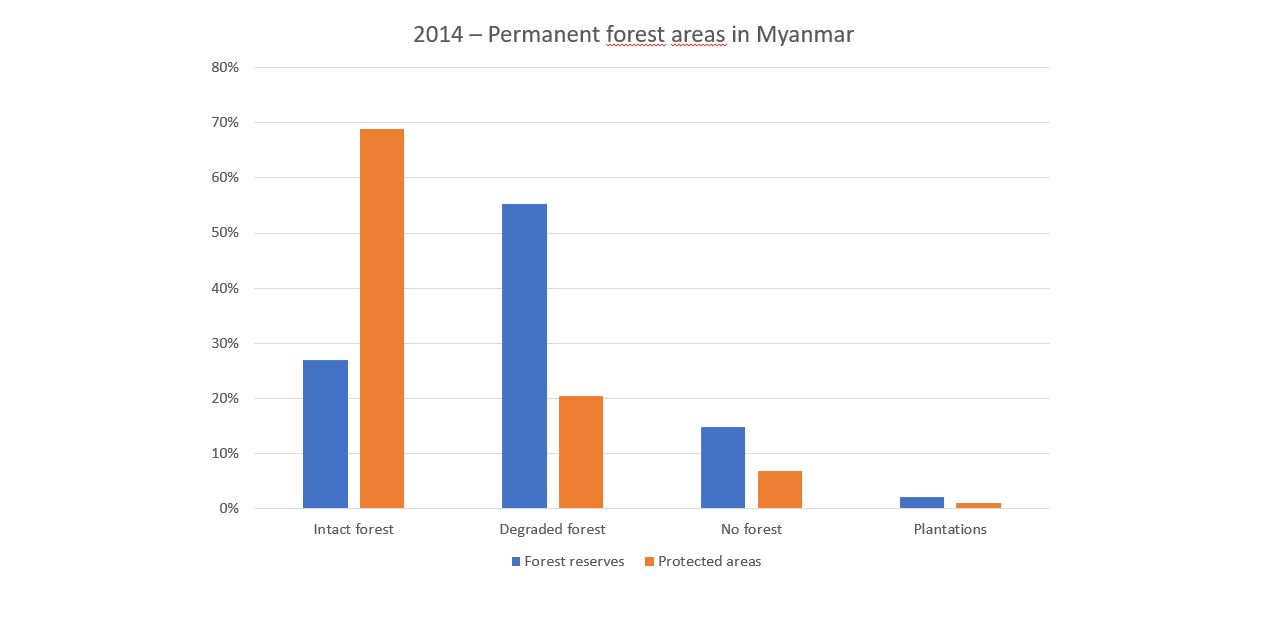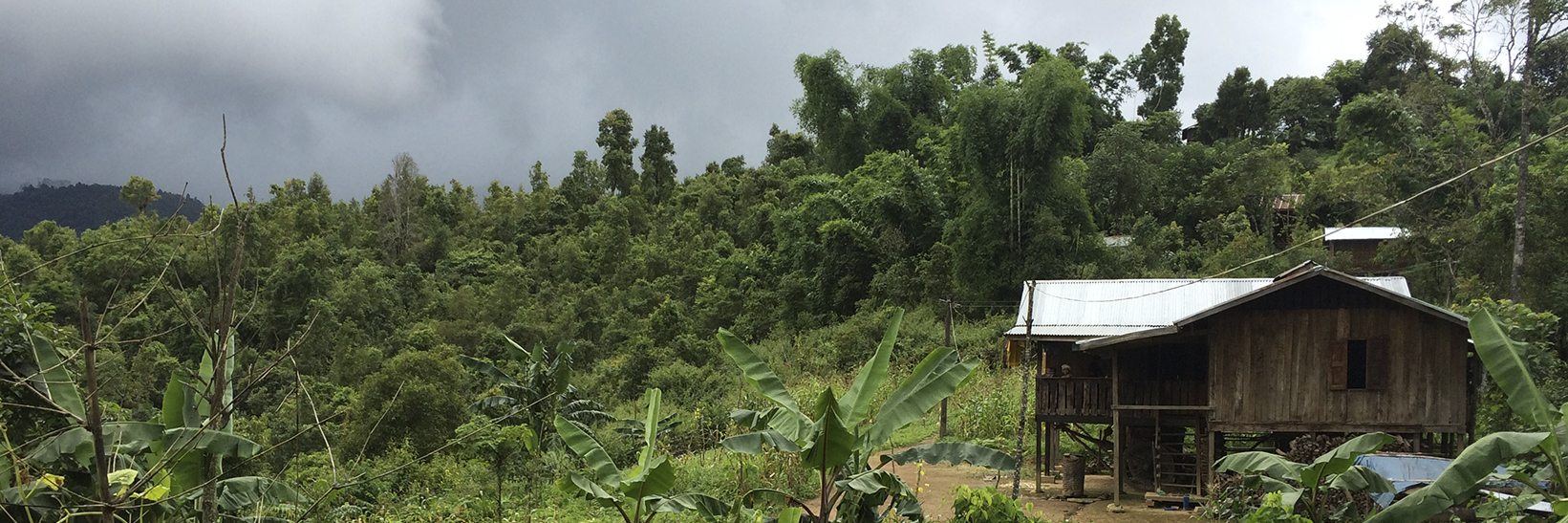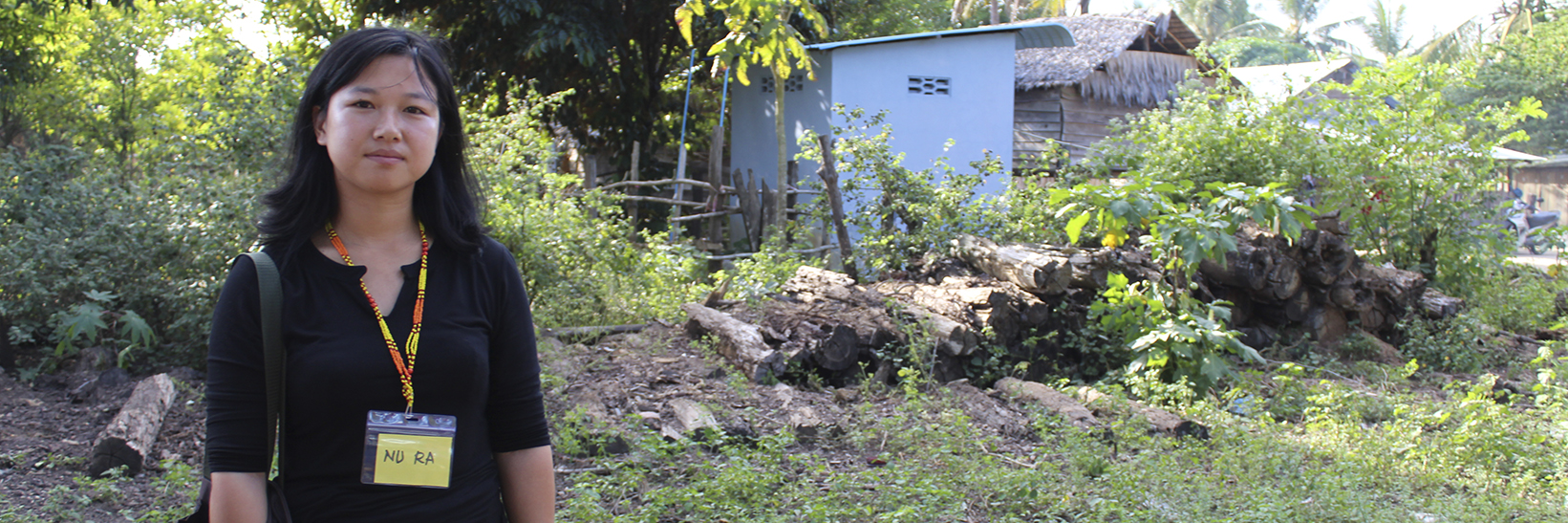
By IWGIA
March 1, 2019.- Myanmar has some of the largest remaining forest areas in Asia, but also some of the highest deforestation rates in the world. Increased focus on the role of indigenous peoples’ rights and use of their knowledge through initiatives like REDD+ is essential for saving the forests and reducing CO2 emissions in the Southeast Asian country.
Myanmar’s nature has a great diversity and wealth superior to the environment in neighbouring countries. In 2016, the country’s remaining forests covered 43 per cent of the land, but recently, the speed of deforestation has increased significantly. Indeed, between 2010 and 2015, Myanmar recorded the third largest area of deforestation globally.

Indigenous peoples are crucial for the conservation of Myanmar’s forest
The Government is officially aiming at protecting and conserving forests on 40 per cent of Myanmar’s territory by 2030. However, the areas that so far have received an official status of protection are still experiencing a high rate of forest degradation. The recent publication Indigenous peoples, land rights and forest conservation in Myanmar found that in 2014, only 24 per cent of Myanmar’s forest was classified as permanent forest and that one-third of the 2.07 million ha of intact forests lost between 2002 and 2014, were inside these areas.

The government cannot manage and control all the forest as it doesn’t have the resources to do so. Indigenous peoples are very important for sustainable forest management in the future.
Myo Ko Ko explains. He is Programme Manager at Promotion of Indigenous and Nature Together (POINT), an indigenous people’s organisation that works to promote indigenous peoples’ rights and protect nature in Myanmar.
In the last decade, several international publications have found that the recognition of indigenous peoples’ territorial rights is an effective – if not the best - way to protect the remaining forests of the world. However, in a country in which the government does not recognise its indigenous population of between 15 and 20 million, there is still a long way to go. Recent global efforts to reduce greenhouse gas emissions and the stream of money that follows green projects in developing countries might bring changes to this status quo.
Climate-funding provides a window of opportunity for indigenous peoples and governments
Deforestation and forest degradation are recognised as one of the main drivers of climate change. Estimates calculate that around 15 per cent of global greenhouse gas emissions come from forest degradation. As a solution to prevent this, the Reducing Emissions from Deforestation and Forest Degradation (REDD+) initiative was created by the United Nations with the aim to “slow, halt and reverse forest cover and carbon loss in developing countries”.
Since December 2011, the government of Myanmar has worked on developing ‘implementing safeguards’ and pilot projects so that REDD+ projects can be used to halt deforestation in the country. The concept of ‘Free, Prior and Informed Consent’ (FPIC) is one of the main pillars in the REDD+ guidelines and this has provided indigenous peoples in Myanmar with the opening they need to get involved as primary inhabitants and custodians of the forest areas.
We called the previous methods for protecting the forest ‘Green Grabbing’. When the government chose to conserve a forest area, inhabitants were thrown out without being allowed to re-enter and gather the resources that they have lived of for generations, explains Myo Ko Ko.
With the inclusion of FPIC in the safeguards of REDD+, the inhabitants of the forest area must be included, informed, consulted and giving their consent freely. This is crucial for ensuring the rights of indigenous peoples.

Indigenous peoples’ rights are recognised step by step
Myo Ko Ko’s organisation, POINT, was established in 2012 to seize the opportunity to promote a rights-based approach for nature conservation under the umbrella of the REDD+ programmes and the government’s ambition to implement these in areas in which indigenous peoples have lived for centuries
Before we didn’t talk about our rights. The REDD+ programme has helped us talk about human rights and land rights with local authorities, Myo Ko Ko explains.
One of the projects that promotes indigenous peoples’ rights was initiated in 2016 with support from IWGIA and funding from Norway’s International Climate and Forest Initiative (NICFI). The project creates awareness and capacity on REDD+, indigenous peoples’ rights, and land rights through sensitisation in local communities, mapping of their territories and training on how to link up with the local governments. These initiatives have shown concrete results as evidenced by one of the communities having started a dialogue with a company and received an offer of compensation for some of its lost land.
Strengthening the voice of indigenous women
Another strong focus of the project is to enhance the participation of indigenous women in the communities’ decision-making processes. Traditionally, the voice of women is not heard as evident by the fact that none of the 330 municipalities of Myanmar have a female municipal administrator. Unfortunately, this gender discrimination is also evident in most of the indigenous communities. However, through sensitisation, the project has managed to increase the engagement of indigenous women and their participation is close to 50 per cent in several of the training activities both at the local and national level.

The inclusion of indigenous women in decision-making processes is crucial as they often have the responsibility of taking care of the household and depend heavily on forest resources to do so. Because of this, they are often even more attentive to the importance of the forest and have a vast knowledge of how to manage forests sustainably and protect them for future generations.
The forest is indigenous women’s life and they will take care of it as it is a family member, explains Nu Ra, a female Programme Assistant at POINT.
Read more about the significance of the forest and the climate change for indigenous peoples in Myanmar in this recent publication on the topic
You can support our work to promote and protect indigenous peoples' rights by becoming a member or donor to IWGIA. Read more here
Latest Climate Action country specific news
Indigenous land in Russia declared World Heritage (Russia)

Añadir nuevo comentario